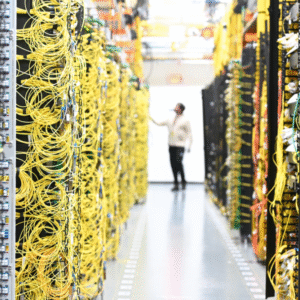The electric vehicle (EV) landscape continues to shift as major players like General Motors and Tesla make moves that could shape the future of transportation. General Motors (GM) has recently announced a temporary halt in production at its electric van factory in Ontario, Canada. Meanwhile, Tesla is capturing headlines with the upcoming reveal of its self-driving “Cybercab.”
These developments come at a time when the global EV market is both expanding and facing new challenges. Market demand, production strategies, and consumer interests are all being reevaluated. This article explores the latest EV industry update and what it means for manufacturers, workers, and the future of electric mobility.
GM Pauses Ontario Electric Van Production
General Motors announced that it is pausing production at its BrightDrop electric van plant in Ingersoll, Ontario. The company cited “current market conditions” as the reason behind the decision, not international tariffs or political issues. This move will directly affect around 1,200 Canadian workers, many of whom will face temporary layoffs as a result.
The plant, which was converted to produce BrightDrop Zevo 600 electric vans, was seen as a major step in GM’s electrification strategy. However, slowing demand for electric commercial vehicles has impacted the company’s short-term production goals.

Not Tariff-Related, But Market-Driven
One of the most important clarifications GM made was that this decision had nothing to do with cross-border trade policies or tariffs. Instead, it reflects a broader challenge in the EV commercial segment — market readiness. Businesses are still in the early stages of switching to electric delivery vans, and many are evaluating cost, charging infrastructure, and performance before making large fleet purchases.
According to a CBC News report (source), the Ontario government has expressed disappointment but remains hopeful that production will resume later in 2025 as demand picks up.
Tesla’s Cybercab: A Disruptive Leap in EV Innovation
While GM is scaling back temporarily, Tesla is ramping up excitement with its upcoming autonomous vehicle announcement. CEO Elon Musk recently teased the launch of the “Cybercab,” an electric self-driving taxi that’s expected to be unveiled in August 2025.
This move aligns with Tesla’s broader vision for autonomous, shared transport and marks another bold step toward transforming urban mobility. The Cybercab aims to reduce costs and emissions by providing a fully automated transport solution that can be summoned via an app, much like current rideshare services.
Spark of Optimism in the U.S. EV Market
Tesla’s Cybercab reveal has created significant buzz across the U.S. EV market, reigniting investor interest and consumer curiosity. Unlike the commercial EV sector, which is still catching up, the idea of personal autonomous mobility seems to be gaining traction.
Many experts believe this could be a key factor in helping the EV market recover from recent plateaus in demand. Innovations like Cybercab could drive mainstream interest and re-energize EV adoption, especially in urban centers.
A Tale of Two EV Strategies
This EV industry update shows two different strategies from two leading manufacturers:
- General Motors is currently dealing with the reality of slower-than-expected demand for commercial EVs. It’s taking a cautious approach by adjusting its production scale and monitoring market feedback.
- Tesla, on the other hand, continues to push the boundaries of technology with its fully autonomous vehicle concept. It’s betting big on the future of mobility, even when that future remains unproven.
Both strategies reflect the ongoing complexity in the EV sector, where innovation must align with real-world market demand.
The Broader Implications for Workers and the Economy
The temporary halt at GM’s Ontario EV plant has a human cost. With 1,200 workers facing uncertainty, local economies are likely to feel the impact. Government officials in Ontario are already looking at ways to support affected workers and are in talks with GM to determine long-term plans for the plant.
Meanwhile, Tesla’s Cybercab project could open up new job opportunities in software development, AI training, and autonomous systems support. However, it also raises questions about the future of traditional driving jobs, especially in rideshare and taxi sectors.
Conclusion
This EV industry update highlights the unpredictable nature of the transition to electric mobility. GM’s decision to pause van production underscores the need for flexible strategies, while Tesla’s ambitious Cybercab plan proves that innovation continues to drive forward — even when the road is uncertain.
As market dynamics evolve, manufacturers will need to balance vision with reality. Governments, workers, and consumers alike will be watching closely to see which strategies succeed in shaping the future of transportation.
External References
- CBC News: GM Ontario Plant Paused
- Reuters: Tesla Cybercab Reveal
- Electrek: BrightDrop Electric Vans
- InsideEVs: Tesla’s Robotaxi Plans










1 Comment